This is my family's Lebanese hummus recipe boasting authenticity and the creaminess you’d expect.
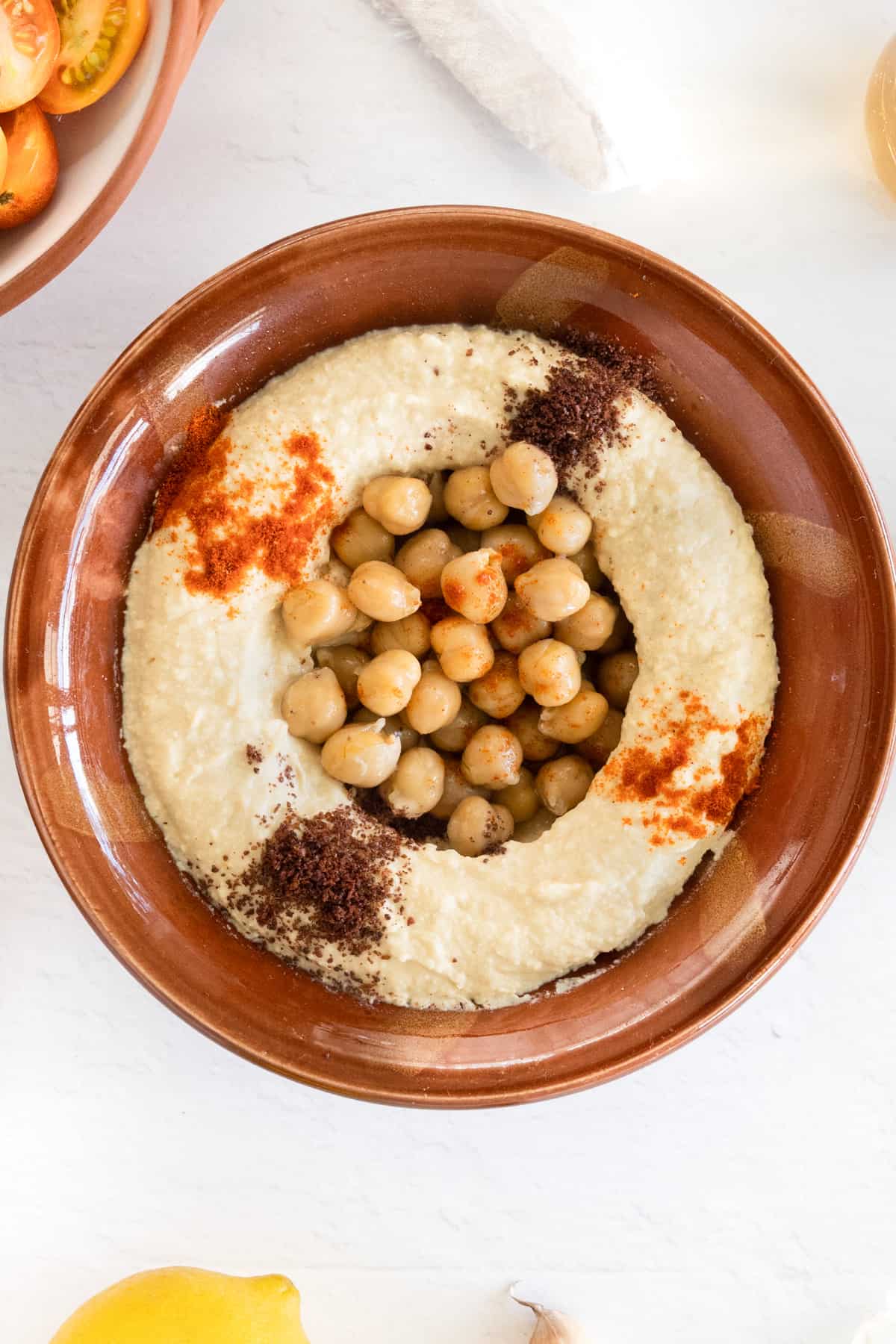
What is Hummus?
The word "hummus" is Arabic for "chickpea", الحمص.
Hummus, also spelled houmous, hommos, or hummous, is a creamy dip or spread made from mashed chickpeas. It is naturally vegan and gluten-free.
It's a centuries-old staple in Middle Eastern and Mediterranean cuisine, believed to have originated in the Middle East and has a rich cultural history in the region.
Traditionally, hummus was made by hand, using a pestle and mortar, where the chickpeas were crushed into a smooth paste. Nowadays, it is made using a food processor; however, some specialist food vendors across the Middle East may still make it by hand.
Modern Variations
Due to its fame, hummus is now made with a variety of flavors, some of my favorites are beetroot, basil, citrus, lime and cilantro and jalapeño.
Each one is just as smooth, creamy, and delicious as this original recipe.
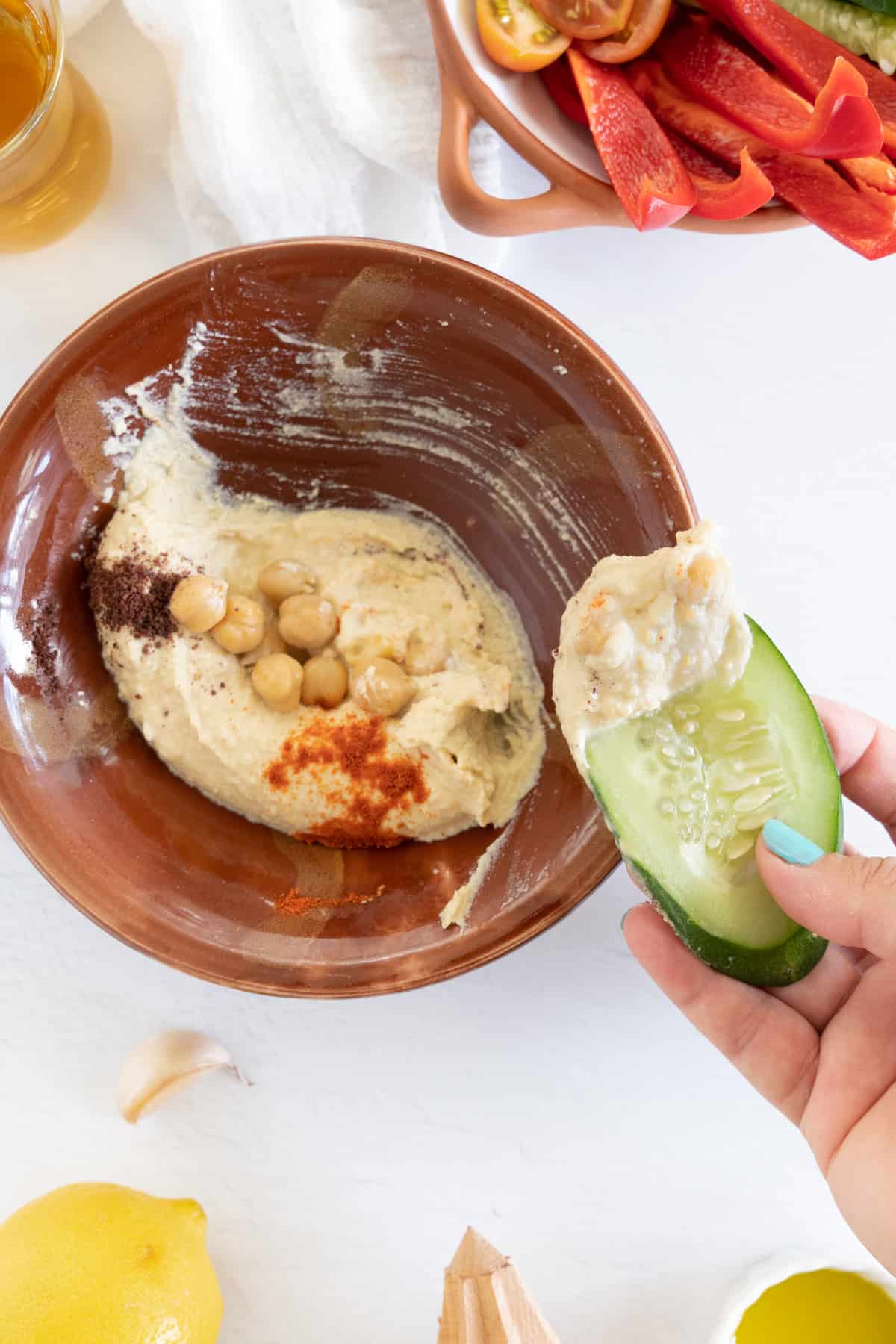
Ingredients Highlight
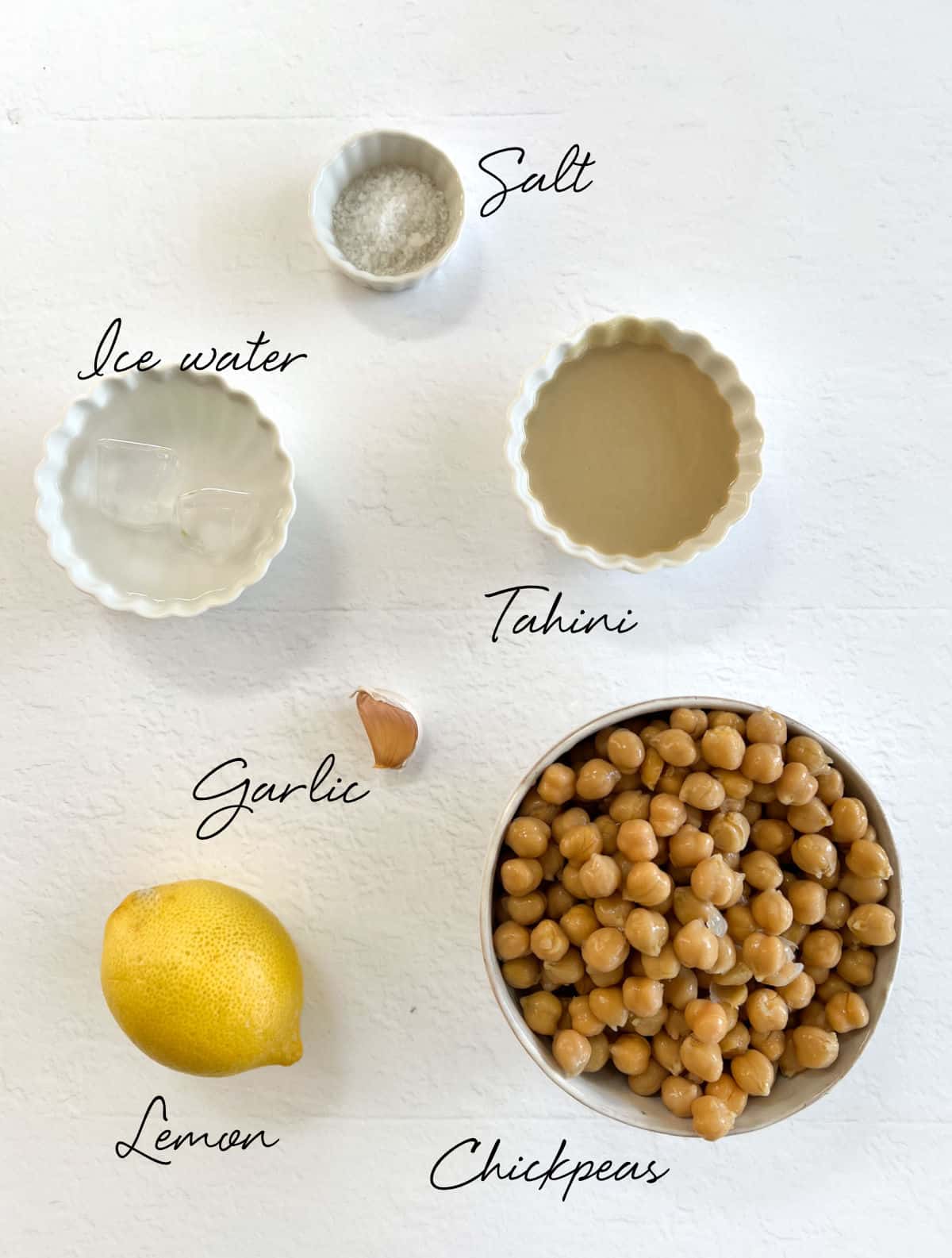
Here are notes on some of the ingredients, the complete list with measurements, can be found in the full recipe card below.
Traditional hummus calls for chickpeas to be mashed with a few other ingredients, including good quality tahini and fresh lemon juice (not store-bought which won't achieve the best flavoring).
This is known as hummus bi tahini.
Dry chickpeas are usually my preference as they are cost-effective and are fresher. However, this method can be time-consuming if you don’t own a pressure cooker.
So for this recipe, I will be using organic canned chickpeas, which are the easier option. I still like to tenderize them, albeit they are cooked, they are still a little too firm for making this dip.
For the folks who are avoiding chickpeas, I made this great northern bean dip as an alternative to this recipe, I am so impressed with how silky smooth it turned out.
Did you know?
Old school hummus was made in a mortar and pestle, the texture was more rustic.
That baba ganoush uses similar ingredients to hummus, find out the difference between them. Which dip do you prefer?
Serving Suggestions
Did you know you can serve hummus warm?
In Lebanon and other Middle Eastern and Mediterranean countries, it is customary to serve freshly crushed, hot, tender chickpeas on the spot. This practice represents the traditional way of serving and enjoying hummus.
If eating hummus for breakfast, you can always find it paired with foul moudamas.
Aside from using it as a dip, try it in my mouthwatering falafel pita sandwich.
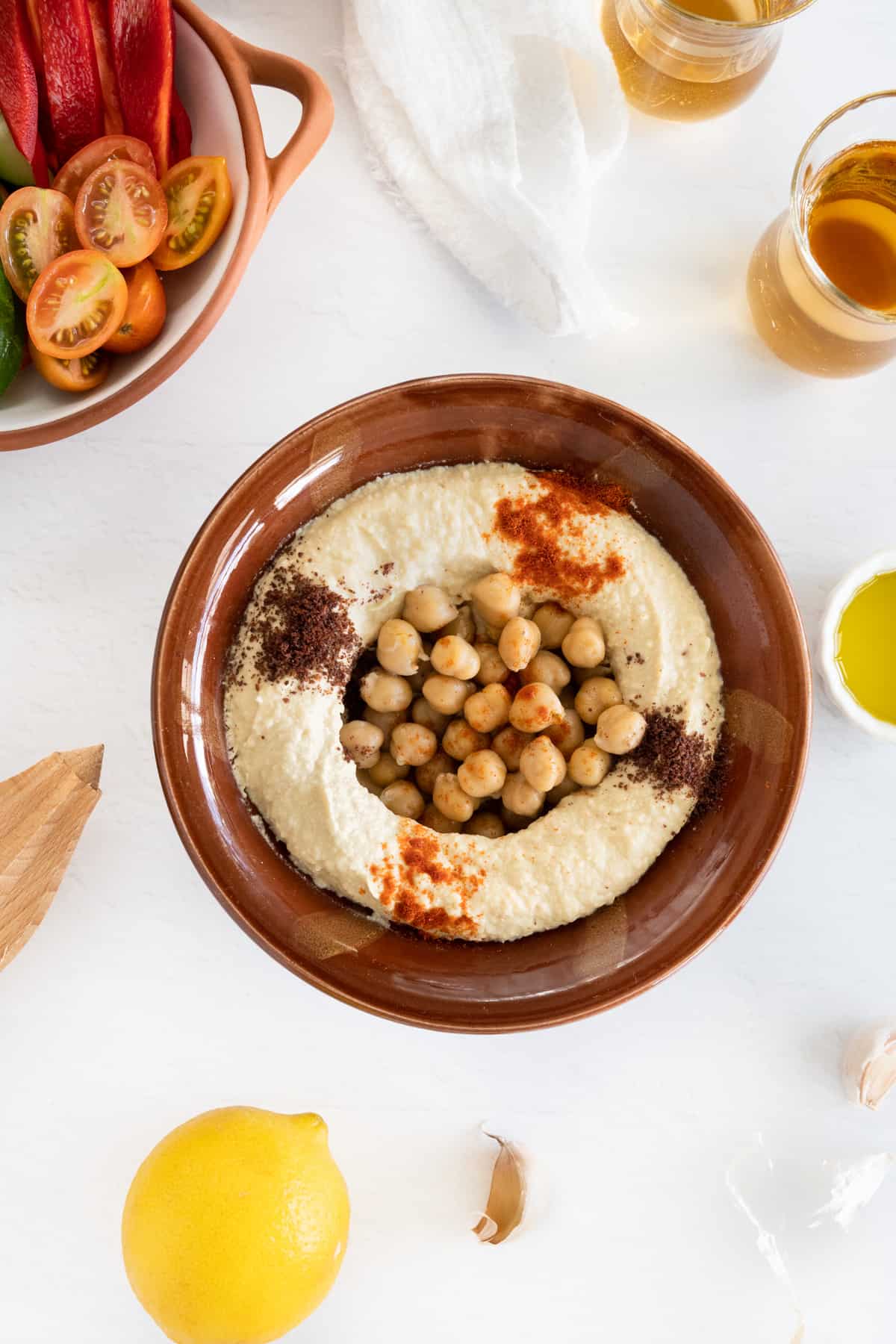
FAQ
If your hummus is not smooth, it could be that the chickpeas were not fully cooked until super tender. Or the ingredients were not processed long enough. To fix this, you can add more ice water to the food processor, or process the ingredients for longer.
Did you make this? I'd love to know! Leave me a comment below with a ★★★★★ star rating or tag @plantbasedfolk on social media.
Recipe
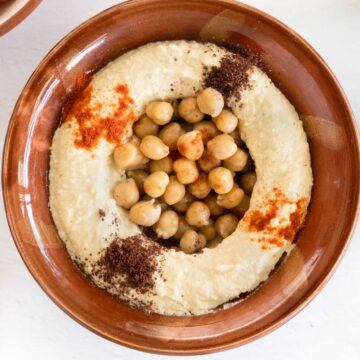
Lebanese Hummus
Ingredients
- 1½ cups Chickpeas cooked tender
- 3 cups Water for boiling the chickpeas
- ¼ cup Tahini
- ¼ cup Lemon juice freshly squeezed
- ¼ cup Iced chickpea water see note 2.
- ½ teaspoon salt or to taste
- 1 Clove Garlic crushed
Instructions
- Drain and rinse the canned chickpeas and then add them to a pot. Cover with water. Bring them to a boil on high heat, then turn down to low-medium and cook them until the skins have started to fall off. See note 1. Reserve half a cup of the chickpea water and place a few ice cubes in it. See note 2.1½ cups Chickpeas, 3 cups Water
- In a food processor, add the drained tender chickpeas, lemon juice, tahini, garlic, iced chickpea water and salt. Blend until smooth and creamy. Taste and adjust the salt, lemon and tahini if necessary.Transfer the hummus to a serving dish, and drizzle it with (optional) extra virgin olive oil and sprinkle with sumac or paprika or cumin.¼ cup Tahini, ¼ cup Lemon juice, ¼ cup Iced chickpea water, ½ teaspoon salt, 1 Clove Garlic
Video
Notes
Nutrition
N.B., nutrition info is an estimate based on an online nutrition calculator. This will vary based on the specific ingredients you use.
If you enjoyed this recipe, consider supporting my work for the cost of a cup of coffee.

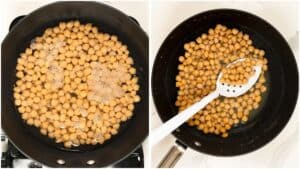
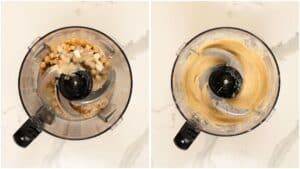

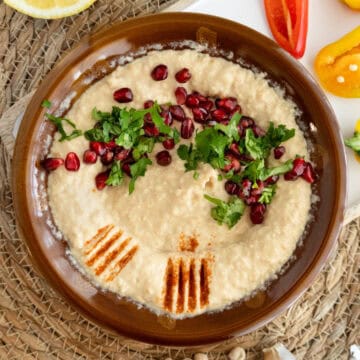
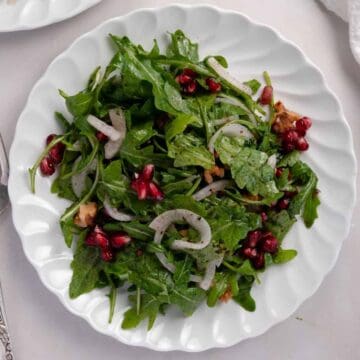
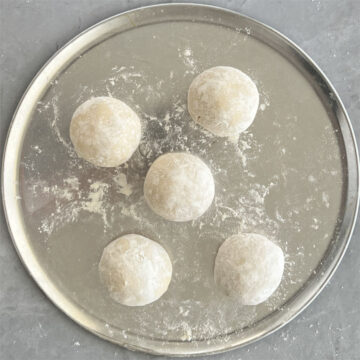
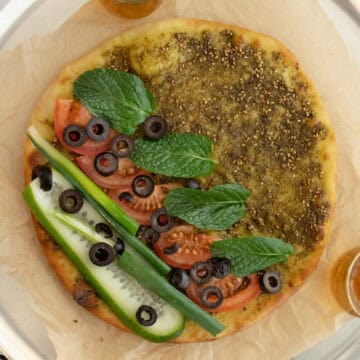
Sylvia
This hummus has a smooth, fluffy texture and a delicious taste. The extra boil and aqua faba addition truly add to its sleekness. My guests loved it. Thank you for these new twists that make a difference!
Stephen
Thanks for explaining if hummus is vegan. I didn’t realize that some pre-made hummus can include other ingredients. It makes sense
Lulu
Hi do I remove the skins or add them to the processor?
Janelle Hama
Hi Lulu,
It is not required. Just make sure your chickpeas are super tender, so the skins are super tender.
Enjoy